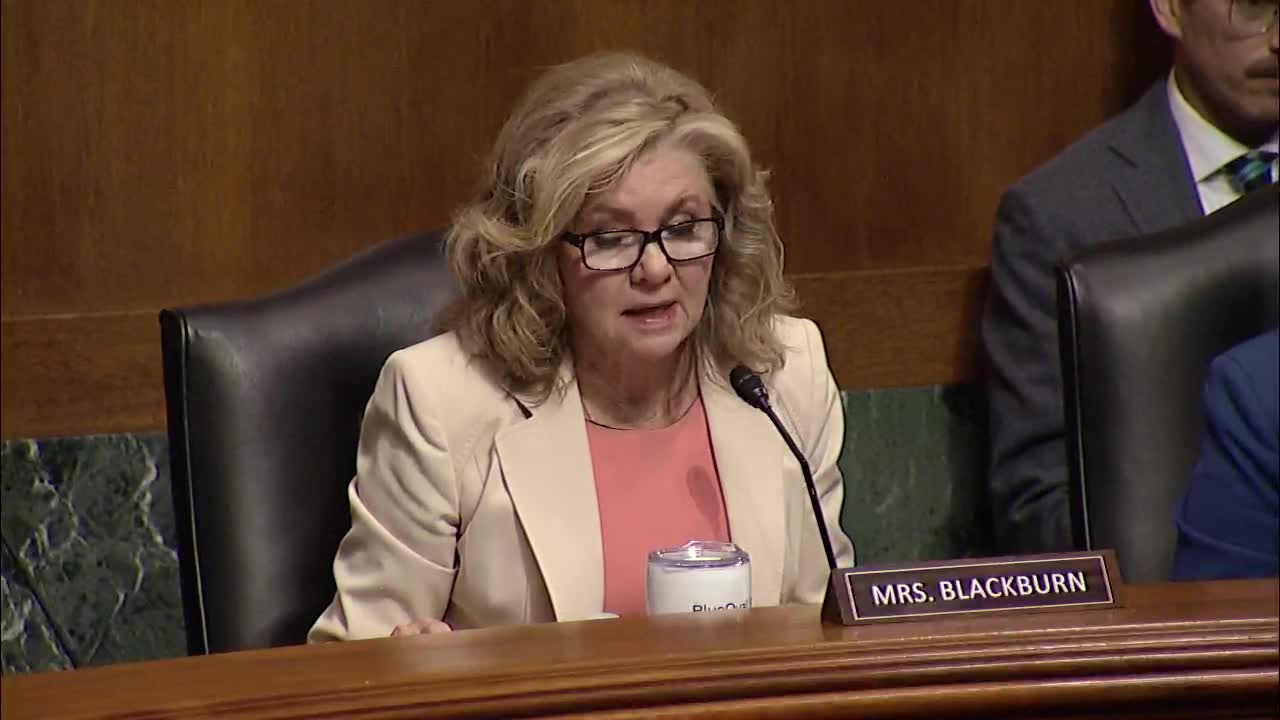Congressional Subcommittee Discusses Federal Online Privacy Legislation and Big Tech Resistance
July 30, 2025 | Judiciary: Senate Committee, Standing Committees - House & Senate, Congressional Hearings Compilation
This article was created by AI summarizing key points discussed. AI makes mistakes, so for full details and context, please refer to the video of the full meeting. Please report any errors so we can fix them. Report an error »

The U.S. Senate Committee on the Judiciary convened on July 30, 2025, to discuss critical issues surrounding online privacy and data protection for American citizens. The hearing, titled "Protecting the Virtual You: Safeguarding Americans' Online Data," focused on the ongoing challenges posed by big tech companies in the realm of federal privacy legislation.
The session began with a discussion led by Mr. Thayer, who highlighted the persistent resistance from major technology firms against federal online privacy regulations. He emphasized that these companies view such regulations as detrimental to their financial interests, leading to a continuous cycle of opposition to legislative efforts. Thayer pointed out that regardless of how carefully crafted privacy legislation may be, big tech will always find reasons to challenge it, often framing it as a privacy violation or a threat to competition.
Thayer further illustrated the urgency for reform by referencing the Kids Online Safety Act, which aims to address the growing concerns of parents regarding the safety of children online. He expressed optimism about the changing landscape, noting that there is a growing recognition among lawmakers that these companies are "bad actors" who prioritize profit over consumer protection.
Miss Goodloe contributed to the discussion by underscoring the importance of state laws in shaping potential federal privacy legislation. She identified common elements in state laws that could serve as a foundation for federal standards, including consumer rights to access, correct, delete, and port their data, as well as the right to opt out of data sales and targeted advertising.
The hearing concluded with a consensus on the need for comprehensive federal privacy legislation that reflects the rights and protections already established at the state level. The committee members expressed a commitment to advancing these discussions and addressing the challenges posed by big tech in safeguarding Americans' online data. As the meeting wrapped up, the focus remained on the necessity of consumer protection in the digital age, with a clear call to action for lawmakers to prioritize these reforms.
The session began with a discussion led by Mr. Thayer, who highlighted the persistent resistance from major technology firms against federal online privacy regulations. He emphasized that these companies view such regulations as detrimental to their financial interests, leading to a continuous cycle of opposition to legislative efforts. Thayer pointed out that regardless of how carefully crafted privacy legislation may be, big tech will always find reasons to challenge it, often framing it as a privacy violation or a threat to competition.
Thayer further illustrated the urgency for reform by referencing the Kids Online Safety Act, which aims to address the growing concerns of parents regarding the safety of children online. He expressed optimism about the changing landscape, noting that there is a growing recognition among lawmakers that these companies are "bad actors" who prioritize profit over consumer protection.
Miss Goodloe contributed to the discussion by underscoring the importance of state laws in shaping potential federal privacy legislation. She identified common elements in state laws that could serve as a foundation for federal standards, including consumer rights to access, correct, delete, and port their data, as well as the right to opt out of data sales and targeted advertising.
The hearing concluded with a consensus on the need for comprehensive federal privacy legislation that reflects the rights and protections already established at the state level. The committee members expressed a commitment to advancing these discussions and addressing the challenges posed by big tech in safeguarding Americans' online data. As the meeting wrapped up, the focus remained on the necessity of consumer protection in the digital age, with a clear call to action for lawmakers to prioritize these reforms.
View full meeting
This article is based on a recent meeting—watch the full video and explore the complete transcript for deeper insights into the discussion.
View full meeting